
I have spent countless hours investigating roadcuts, streambanks, and outcrops for fossils. The vast majority of the time, I am not successful. Experienced fossil collectors know that many rocks are barren of fossils, especially in early Paleozoic sediments. Many sedimentary rocks are just vast sequences of shale, sand, and limestone. Whatever lived in the seas or on the seafloor did not always become part of the rock.
If you want to find fossils, you must look in rock sequences conducive to hosting life and preserving fossils. Thick beds of shale, sandstone, and limestone often did not have the right conditions. Shales formed from vast deposits of mud, and sandstones can sometimes represent rapid deposition from alluvial fans or river deltas that could not preserve animal bodies. Limestones, especially early Paleozoic limestones, at times formed from solely chemical precipitates and carbonate mud and often do not have visible fossils.
However, a significant feature that you may encounter in otherwise barren shales, sandstones, and limestones is an ancient coral reef. Coral reefs formed in relatively warm shallow waters and were often full of life. A fossil coral reef is virtually guaranteed to have fossils.
HUNTING FOR CORAL REEF FOSSILS
While coral reefs were undoubtedly extensive, they can often be hard to find, as they are only visible where sections with the reef components are exposed. These exposures may be in roadcuts, stream beds, cliff sides, or in quarries. The reef’s presence is often indicated by the remnant structure of corals and other materials that formed the reef.
This story is from the October 2020 edition of Rock&Gem Magazine.
Start your 7-day Magzter GOLD free trial to access thousands of curated premium stories, and 9,000+ magazines and newspapers.
Already a subscriber ? Sign In
This story is from the October 2020 edition of Rock&Gem Magazine.
Start your 7-day Magzter GOLD free trial to access thousands of curated premium stories, and 9,000+ magazines and newspapers.
Already a subscriber? Sign In
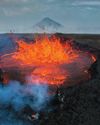
THE BRIGHT SIDE OF VOLCANIC ROCK
As a mineral resource, volcanic rock is decidedly short on glamour.
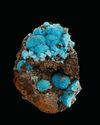
The Other Copper Minerals
12 Lesser-known Collectible Species

MINERAL COLLECTING -AND ROCK & GEM
Evolving Together FOR 54 YEARS
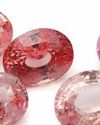
Gemstone Trends
A Look Back at 2024 & What to Expect in 2025
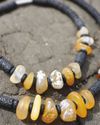
How to Make a GEM BEAD NECKLACE
No Lapidary Experience Needed!
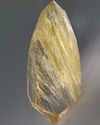
Framing Nature's Art
Faceting Rutilated Quartz for Beginners
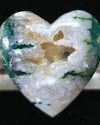
BEDAZZLED BLUE SEAM AGATE
More than several centuries ago, mining was the profession most often seen as befitting of men.
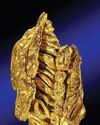
ROCK & GEM FIELD GUIDE:
Spinel is a captivating gemstone with a rich history of being mistaken for gems like ruby and sapphire.
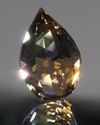
SNAKE SCALE DROP 1.5:1
This Faceting Focus is revisiting the briolette gemstone design because of its popularity with independent and hobby gemstone faceters.

STONE CHIC
How Earth-Inspired Decor Brings Comfort to our Home